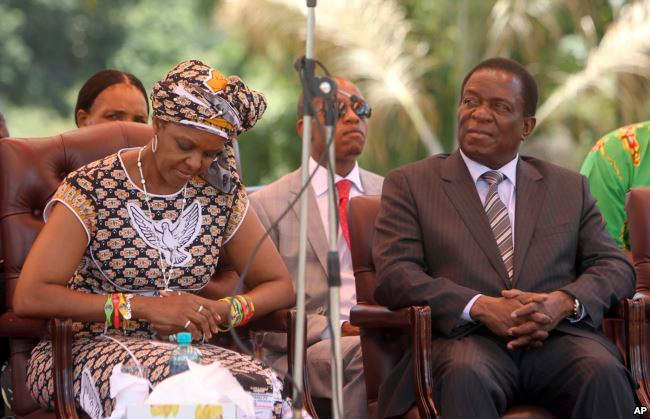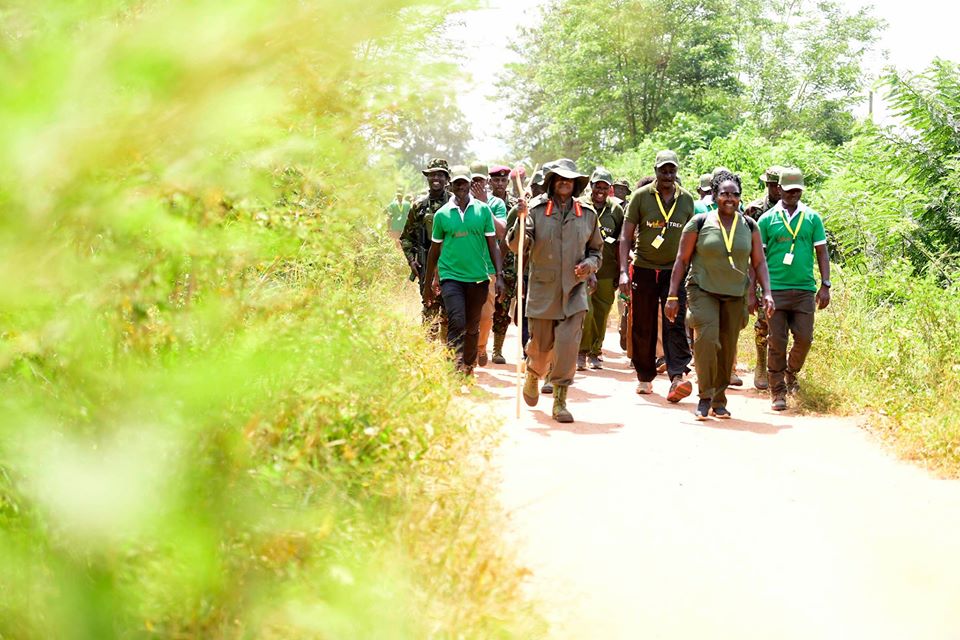For 37 years, Robert Mugabe withstood challenges to his rule from former allies, from sanctions, from the opposition that nearly toppled him in the 2008 election. Today, it appears he has finally lost his grip on power, undone in part by the actions of his wife, first lady Grace Mugabe.
While Zimbabwe’s military said Wednesday it is not taking control of the government, its move to detain the Mugabes marks the first time since 1980 the president is clearly not in charge of the southern African nation.
The debate over who will succeed Mugabe has raged for years, especially as the president, now 93, has grown increasingly frail and spent long periods in Singapore for vacations and reported medical treatment.
Mugabe tried to suppress the competition within party ranks, and the party projected the appearance that the president remained fit and firmly in control. In December of last year, ZANU-PF nominated Mugabe as its sole presidential candidate for the 2018 elections.
Appearances, however, were hard to maintain as infighting grew more public and vicious. ZANU-PF split into two factions over the succession battle, one one that supported Vice President and Mugabe’s liberation war ally Emmerson Mnangagwa, and one that supported the first lady.

Mnangagwa, 75 years old and known as “the crocodile,” was a close Mugabe ally for decades before his abrupt dismissal on November 5. Mnangagwa retains the strong backing of liberation war veterans who have always played a large role in Zimbabwe’s affairs and been considered a key pillar of the Mugabe government’s support.
Grace Mugabe, 52, who married Mugabe in 1996 after the death of his first wife, has won genuine support among younger ZANU-PF activists. Her political rise over the past four years, however, has upset many Zimbabweans who see her as overly aggressive and power hungry.
Eyebrows were raised in 2014 when she was given a doctorate in sociology from the University of Zimbabwe just two months after registering at the school.
Late that same year, she fiercely criticized then-Vice President Joice Mujuru, saying she was plotting to overthrow the president. In December 2014, Mujuru was dismissed from her positions as vice president and within the ZANU-PF leadership.
The first lady made more headlines this year, most notably when she said her husband could run for re-election “as a corpse” if necessary. In August, she was accused of assaulting a model in a Johannesburg hotel room. The first lady refuted the allegation, saying she was trying to protect her sons from the woman, who she said was drunk.
The final straw apparently came last week when the president dismissed Mnangagwa as vice president and suggested that his wife would replace him, putting putting her a heartbeat — a weakening, aging heartbeat — away from the presidency.
Future of the Mugabes?






